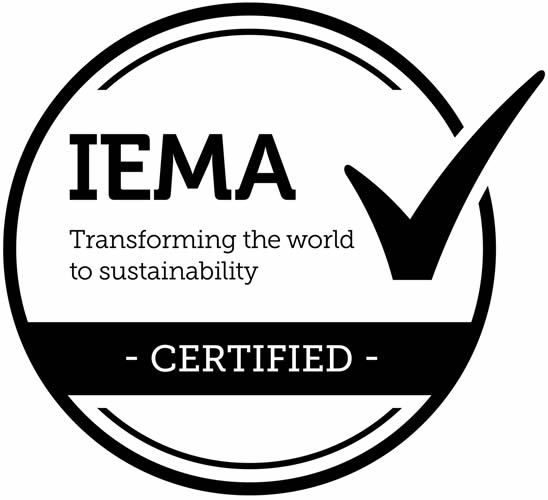You are here
- Home
- Teaching
- Systems Thinking in Practice
- Applied Systems Thinking in Practice Resources
css pmedia
Applied Systems Thinking in Practice Resources
Resources available online
Members of the Systems group at the OU had a significant influence in piloting what is now the University-wide Open Research Online (ORO) - making OU research publications freely available online.
We have also had a long tradition of developing resources that may be used by others externally in pursuit of supporting the application of systems thinking in practice, particularly on OpenLearn.
Badged Open Course
A freely available open online 8 week course (approximately 3 hours/week) called Mastering Systems Thinking in Practice introduces systems thinking in practice at postgraduate level.
Diagramming Tutorials
- Guide to diagrams Simon Bell, Kevin Collins and Andy Lane
-
Systems diagramming for teaching. Karen Shipp and ASTiP colleagues (based on module T552 Systems Thinking and Practice: Diagramming). Systems thinking practitioners at the OU have supported and developed the use of a range of diagramming techniques as the principal tools through which visual modelling and communication can occur. The following diagramming techniques each have videos providing animated tutorials – one video describing What the technique is and at least one other video describing How to draw the diagram (two separate videos for drawing multiple cause diagrams are available using two separate case studies).
The ‘How to draw’ tutorials for Spray, Rich picture, and Systems map listed below are all related to a South African case study with a short summary on the link Working for Water Programme (WWP) case study. This case study relates to the whole set of diagramming resources found in item 3 below: ‘Systems diagramming for development’. For item 2 you may like to read the short summary of the case study before looking at the first three tutorials listed below.
The animated tutorials
- Spray diagrams: What are they (5:39) and How to draw...WWP (3.00)
- Rich pictures: What are they (4.05) and How to draw...WWP (2.26)
- Systems maps: What are they (4.19) and How to draw...WWP (6.52)
- Influence diagrams: What are they (0.53) and How to draw... Company profits and some differences with multiple cause diagrams (7.29)
- Multiple cause diagrams: What are they (3.00) and How to draw:1...Drawing from scratch (3.00), How to draw:2...Technology and food supply (4.55)
- Causal loop diagrams: What are they (4.08) and How to draw..Global climate change (3.52)
A further Integrated animated tutorial (aviation expansion) provides a case study situation of interest demonstrating an integration of diagramming techniques outlined above (11mins 10sec)
- Systems diagramming for development. Martin Reynolds and ASTiP colleagues (based on module TU872: Institutional Development: conflicts, values and meanings): rich picture, spray, systems map, influence, multiple cause, cognitive mapping using the Working for Water Programme (WWP) case study. WWP actively addresses the impoverishment of black South Africans where 14 million South Africans currently have no or inadequate water supplies
- Diagramming for development 1 - Bounding realities: rich picture, spray diagram, systems map
- Diagramming for development 2 – Exploring interrelationships: influence, multiple cause, cognitive mapping.
- Systems explained: Diagramming… four short video clippings on business management diagramming
Short introductory material on Systems thinking
- Introducing Systems Thinking- 1 teaching and case studies
- Introducing Systems Thinking – 2 audio, video and modelling
Sample course material from Postgraduate modules on Systems Thinking in Practice
- Sample course resources from core STiP module TB871 Making strategy with systems thinking in practice;
- Free course on OpenLearn derived from TU811 Strategic planning: systems thinking in practice
- Introduction chapter to TB871 core Reader: Reynolds, M. and Holwell, S. (2020). Introducing systems approaches. In: Martin Reynolds and Sue Holwell eds. Systems Approaches to Making Change: A Practical Guide. 2nd Edition. London: Open University and Springer, pp. 1–23.
- Final chapter to TB871 core Reader: Reynolds, M. and Holwell, S (2020). Chapter 7. Epilogue: Systems Approaches and Systems Practice. In: Martin Reynolds and Sue Holwell eds. Systems Approaches to Making Change: A Practical Guide. 2nd Edition. London: Open University and Springer, pp. 307-321.
- Sample course resources from core STiP module TB872 Managing change with systems thinking in practice
- Introduction chapter to TB872 first core Reader: Blackmore, Chris ed. (2010). Social Learning Systems and Communities of Practice. Springer.
- Sample chapter from TB872 first core Reader: Blackmore, Chris (2010). Managing systemic change: future roles for social learning systems and communities of practice? In: Blackmore, Chris ed. Social Learning Systems and Communities of Practice. London: Open University and Springer, pp. 201–218.
- Sample chapter 4 to TB872 second core Reader: Ison, Ray (2017). Chapter 4 The Juggler: A Way to Understand Systems Practice In: Ison, R. (2017) Systems Practice: How to Act. In situations of uncertainty and complexity in a climate-change world. 2nd Edition. London: Springer & The Open University, pp. 59-85.
- Introduction and two sample chapters (ch.10 Jay Forrester and ch.14 Russell Ackoff) from third supplement reader: Ramage, M. and Shipp, K. (2020). Systems Thinkers (2nd Edn). London: Open University/Springer-Verlag.
Sir Geoffrey Vickers Archive catalogue now online!
Sir (Charles) Geoffrey Vickers. Geoffrey Vickers (1894-1982) had a varied life as a lawyer, soldier, economic intelligence officer and legal advisor. In the later years of his life he became a prolific writer and speaker on the subject of social systems analysis and the complex patterns of social organisation.
A new online catalogue of the Geoffrey Vickers papers is now available from the OU Archive web pages.
The catalogue is also available from the Archives Hub website. The Archives Hub is a national gateway to descriptions of archives within UK universities and colleges. As part of the Hub, the Vickers catalogue is now cross-searchable with hundreds of other collections.
For further information or to arrange a visit to consult the Geoffrey Vickers collection, contact The University Archivist, at or on +44 (0) 1908 653378.






